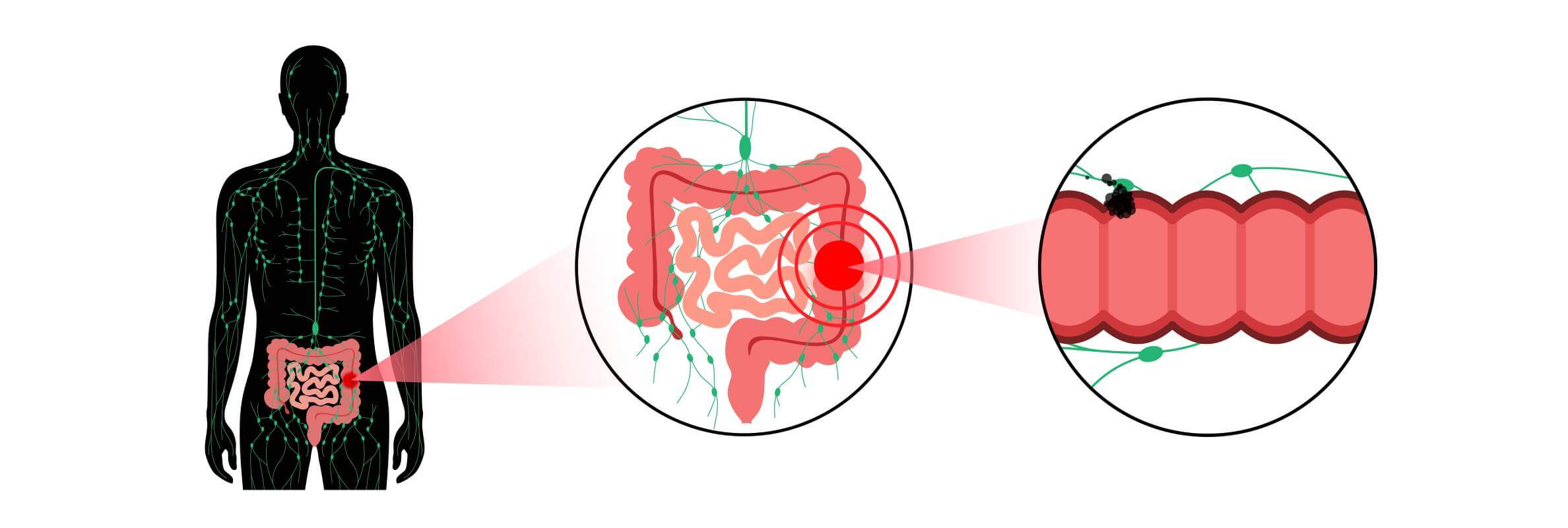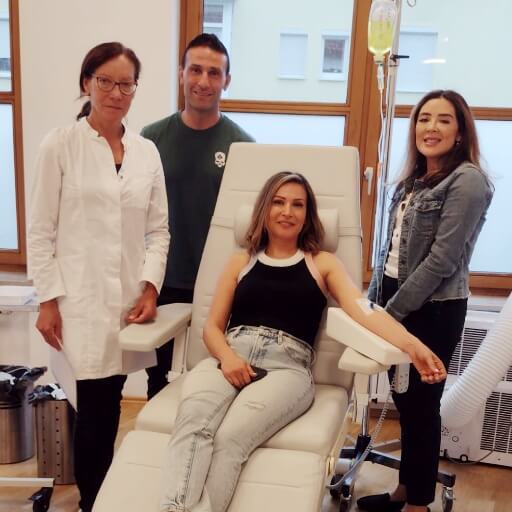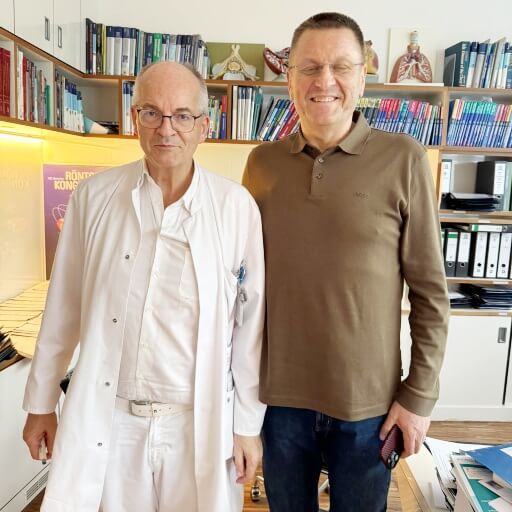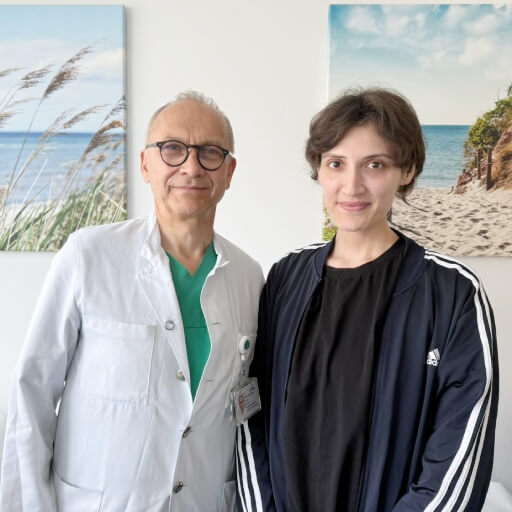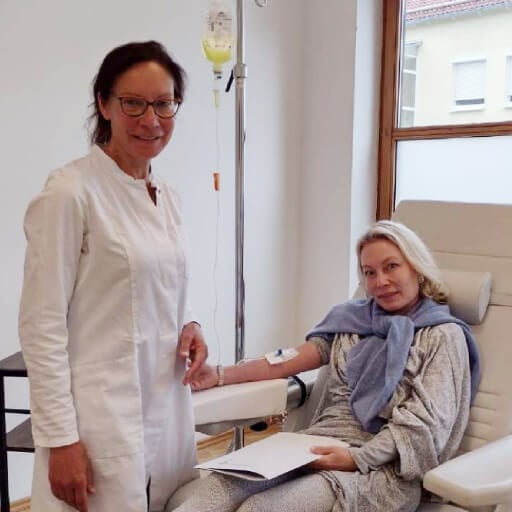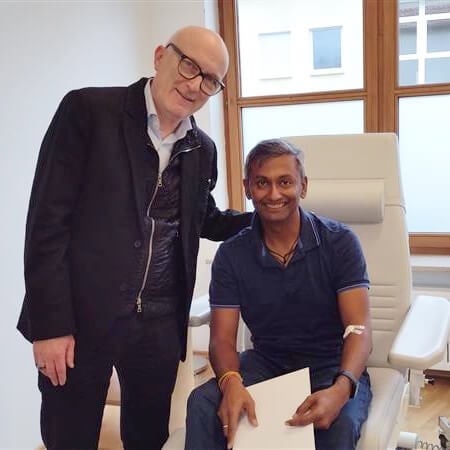أصبحت الأورام العصبية الصماوية (NETs) أكثر شيوعاً بشكل ملحوظ خلال العقدين الماضيين. بين عامي 2000 و 2018، ارتفع معدل الإصابة المُعدل حسب العمر من 4.9 إلى 8.2 حالة لكل 100.000 شخص، مع ملاحظة الزيادات الأكثر حدة في الأورام من الدرجة الأولى، وحالات المرحلة المبكرة، وأورام الزائدة الدودية [1]. من المثير للقلق أن مُعدل الوفيات ارتفع بأكثر من ثلاثة أضعاف خلال نفس الفترة، على الرغم من توفر أدوات تشخيص أفضل.
فهم الأورام العصبية الصماوية
على الرغم من أن الأورام العصبية الصماوية (NETs) نادرة نسبياً مقارنةً بالسرطانات الأخرى، إلا أن تعقيدها يجعلها مجموعة مميزة وصعبة من الأمراض. يمكن أن تتصرف بشكل مختلف تماماً اعتماداً على مكان نشأتها، ومدى عدوانيتها، ومدى اكتشافها مبكراً. يُعد فهم السِمات الأساسية لهذه السرطانات أمراً بالغ الأهمية من أجل التشخيص والعلاج المناسبين.
فهم كيف تتطور الأورام العصبية الصماوية NETs
تنشأ الأورام العصبية الصماوية NETs (أورام الغدد الصماء العصبية) من الخلايا التي تحمل كلا من سِمات الخلايا العصبية والخلايا المُنتجة للهرمون. تتناثر هذه الخلايا في جميع أنحاء الجسم، ولهذا السبب يمكن أن تظهر الأورام العصبية الصماوية في مجموعة متنوعة من الأعضاء. ما يجعلها فريدة من نوعها هو قدرتها على إطلاق هرمونات أو مواد شبيهة بالهرمونات، مما يُسبب في بعض الأحيان متلازمات سريرية مميزة.
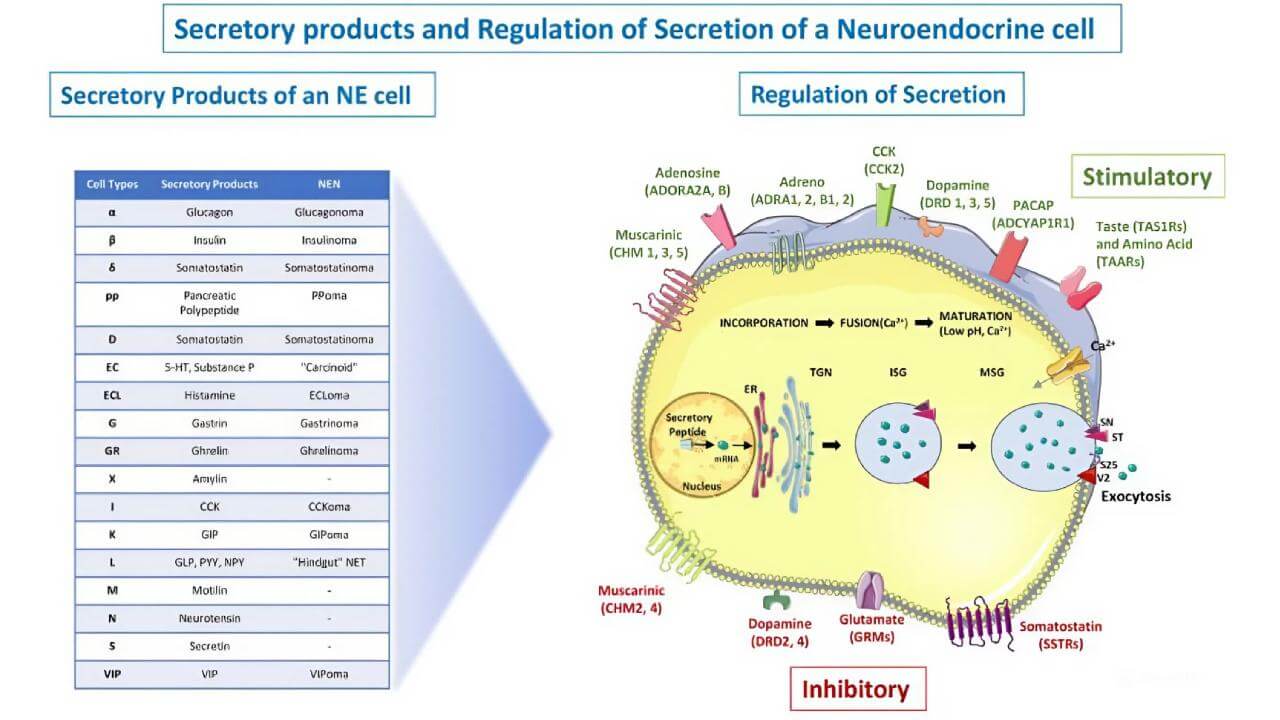
الأسباب الشائعة وعوامل الخطر
في معظم الحالات، لا يُعرف السبب الدقيق لـ NETs. ومع ذلك، تقترح المعلومات المتاحة أن بعض الحالات الوراثية، مثل الأورام العصبية الصماوية المتعددة من النوع الأول (MEN1)، يمكن أن تُزيد من الخطر. تشمل العوامل المحتملة الأخرى الالتهاب المزمن في الجهاز الهضمي، والتدخين (خاصةً في حالة الأورام العصبية الصماوية NETs في الرئة)، والتاريخ العائلي لأورام مماثلة. ومع ذلك، يتطور لدى العديد من الأشخاص NETs دون وجود أي عوامل خطر واضحة.
الأعراض التي يجب الانتباه لها
تختلف أعراض NETs بشكلٍ كبير اعتماداً على موقع الورم وما إذا كان يُنتج هرمونات. تنمو بعض الأورام في صمت لسنوات، في حين أن البعض الآخر يُسبب علامات ملحوظة في وقتٍ مبكر. قد تشمل الأعراض الشائعة آلام البطن، وتغيرات في عادات الأمعاء، واحمرار، وأزيز الصدر، وفقدان الوزن غير المُبرر، أو التعب. يمكن أن تؤدي السرطانات المُفرزة للهرمونات إلى إثارة متلازمات مثل المتلازمة السرطاوية، والتي تشمل الإسهال، واحمرار الجلد، ومشاكل صمام القلب.
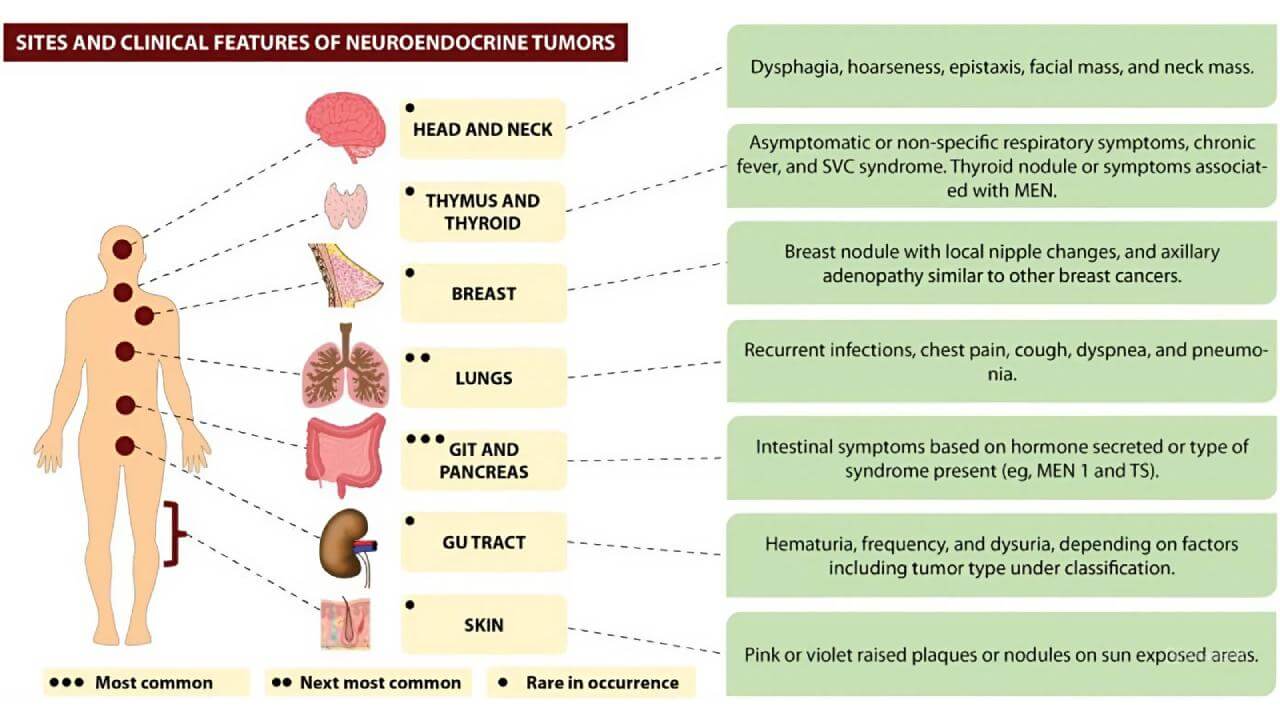
كيف يتم تصنيف الأورام العصبية الصماوية
يتم تصنيف السرطانات العصبية الصماوية على أساس أمرين رئيسيين: مدى تشابه خلايا الورم مع الخلايا الطبيعية (هذا ما يُسمى بالتمايز) ومدى سرعة انقسامها. يساعد كلا العاملين الأطباء على فهم مدى عدوانية الورم واختيار استراتيجية العلاج المناسبة.
تُقسّم منظمة الصحة العالمية (WHO) الأورام العصبية الصماوية أو أورام الغدد الصُم العصبية إلى ثلاث درجات، اعتماداً على سرعة نمو الخلايا [3]. يتم قياس ذلك من خلال مؤشرين:
- مُعدل الانقسام المتساوي – عدد الخلايا التي تنقسم تحت المجهر
- مؤشر Ki-67 – اختبار معملي يوضح عدد الخلايا الموجودة في المرحلة النشطة من النمو
فيما يلي تفصيل مُبَسط:
- الدرجة الأولى (G1): هذه أورام بطيئة النمو. تحت المجهر، تنقسم أقل من خليتين لكل 10 حقول عالية الطاقة، ونسبة Ki-67 أقل من 3٪.
- الدرجة الثانية (G2): هذه الأورام أكثر نشاطاً، مع 2 إلى 20 خلية مُنقسمة ونسبة Ki-67 تتراوح بين 3٪ و 20٪.
- الدرجة الثالثة (G3): هذه أورام سريعة النمو ويحتمل أن تكون أكثر عدوانية، مع أكثر من 20 انقساماً ونسبة Ki-67 أعلى من 20٪.
تُسمى معظم أورام G1 و G2 بـ NETs جيدة التمايز وتميل إلى النمو أكثر بطأً. من ناحيةً أخرى، عادةً ما تكون أورام G3 ضعيفة التمايز ويُشار إليها بالسرطانات العصبية الصماوية (NECs) - شكل أكثر عدوانية.
الأساليب التشخيصية لـ NETs
يتطلب تشخيص NETs مزيجاً من الفحوصات المعملية وتقنيات التصوير المتقدمة. وبما أن هذه الأورام يمكن أن تتصرف بطرق غير متوقعة وغالباً ما تنمو ببطء، فمن الضروري استخدام أدوات متعددة للكشف عنها مبكراً، وتقييم نشاطها، وتوجيه العلاج. في ألمانيا، تُعتبر بروتوكولات التشخيص شاملة وتتضمن اختبارات قياسية ومتخصصة للغاية.
اختبارات الدم وعلامات الأورام
عادةً ما يكون فحص الدم الروتيني هو الخطوة الأولى. يقوم الأطباء بفحص المؤشرات العامة للصحة، بما في ذلك تعداد الدم الكامل ووظيفة الكبد والكلى، لأن NETs يمكن أن تؤثر في بعض الأحيان على هذه الأنظمة.
بشكل أكثر تحديداً، يتم قياس العديد من علامات الورم بشكلٍ شائع:
- Chromogranin A (CgA) هو علامة NET الأكثر استخداماً.
- Neuron-specific enolase (NSE) قد ترتفع في الأورام عالية الدرجة أو ضعيفة التمايز.
- Pancreatic polypeptide و Gastrin و Serotonin metabolites (مثل 5-HIAA) يمكن أن تكون مفيدة أيضاً، اعتماداً على نوع الورم.
لا تكون هذه العلامات محددة دائماً، ولكنها قد تكون مفيدة لمراقبة استجابة العلاج وتتبُع تَقدُم المرض.
الاختبارات الهرمونية
بالنسبة لـ NETs العاملة، والتي تُنتج هرمونات زائدة، تُعدّ التحاليل الهرمونية هي المفتاح. اعتماداً على الأعراض وموقع الورم، قد يقوم الأطباء بقياس:
- Serotonin و 5-HIAA (في البول أو البلازما)، وخاصةً في المتلازمة السرطاوية
- Insulin أو Glucagon أو Gastrin أو VIP أو Somatostatin لـ NETs البنكرياسية
- ACTH أو cortisol لـ NETs المرتبطة بالغدة الكظرية
تساعد هذه الاختبارات في تحديد الأورام المُفرزة للهرمونات ومراقبة فعالية العلاج.
تقنيات التصوير: CT و MRI و PET-CT
يلعب التصوير دوراً محورياً في كلا من التشخيص وتحديد المرحلة [4].
- التصوير المقطعي المحوسب المعززة بالتباين CT غالباً ما تكون هي أداة التصوير من الخط الأول للكشف عن حجم، وموقع، وانتشار NETs
- التصوير بالرنين المغناطيسي MRI يُعتبر مفيداً بشكلٍ خاص في حالات نقائل الكبد و NETs البنكرياسية نظراً لدقته العالية في تصوير الأنسجة الرخوة
- PET-CT هي طريقة تصوير حساسة للغاية يمكنها اكتشاف الأورام التي تُعبر عن مستقبلات Somatostatin. يُعتبر الآن المعيار الذهبي في كثير من الحالات
- FDG PET-CT قد يتم استخدامه في الأورام عالية الدرجة أو سريعة النمو حيث يكون تصوير مستقبلات Somatostatin أقل فعالية
يساعد الجمع بين هذه الوسائل على بناء صورة كاملة للمرض.
الخزعة وتأكيد التشخيص
لإجراء تشخيص نهائي، يُعدّ أخذ خزعة أمراً ضرورياً. يتم فحص عينات الأنسجة للتأكد من وجود خلايا عصبية صماوية، وتقييم درجة الورم، وحساب مؤشر Ki-67، الذي يُشير إلى مدى سرعة نمو الورم. تُعتبر هذه المعلومات ضرورية لتحديد المرحلة واختيار العلاج المناسب.
خيارات العلاج القياسية
تختلف الأورام العصبية الصماوية (NETs) على نطاق واسع في سلوكها، لذلك يجب تصميم العلاج وفقاً لموقع الورم، ودرجته، ومرحلته، وما إذا كان يُنتج هرمونات. في ألمانيا، بروتوكولات العلاج القياسية راسخة جيداً وتُركز على السيطرة على المرض، وتخفيف أعراضه، وتحسين البقاء على قيد الحياة على المدى الطويل.
الجراحة لإزالة الورم
تظل الجراحة علاج الخط الأول للعديد من المرضى المصابين بالأورام العصبية الصماوية، وخاصةً تلك التي يتم اكتشافها مبكراً. في الأورام منخفضة الدرجة، والأورام ذات التمايز الجيد، يمكن أن تكون الإزالة الجراحية الكاملة شافية.
تتراوح الإجراءات من جراحة تنظير البطن طفيفة التوغل إلى الاستئصال واسع النطاق بشكلٍ أكثر، اعتماداً على حجم وانتشار الورم. في بعض الحالات، حتى NETs النقيلية قد تتم إزالتها جزئياً لتقليل عبء الورم وتحسين جودة الحياة.
بالنسبة للمرضى المصابين بـ NETs في الزائدة الدودية أو الأورام الصغيرة في الأمعاء الدقيقة أو البنكرياس، فإن الجراحة غالباً ما تكون الخيار الأفضل مع إمكانات شافية.
العلاج الإشعاعي
لا يتم استخدام العلاج الإشعاعي بشكل روتيني لمعظم الأورام العصبية الصماوية جيدة المتمايز، لأنها تميل إلى أن تكون أقل حساسية للإشعاع القياسي. ومع ذلك، في السرطانات العصبية الصماوية عالية الدرجة (NECs)، أو عندما تُسبب الأورام أعراضاً موضعية مثل الألم أو النزيف، يمكن للإشعاع الموجه أن يوفر سيطرة فعالة.
العلاج الكيميائي للأورام العدوانية أو المتقدمة
يتم عادةً تخصيص العلاج الكيميائي للأورام العصبية الصماوية ضعيفة التمايز عالية الدرجة أو عندما يكون المرض متقدماً ويتطور بسرعة.
في بعض حالات الأورام العصبية الصماوية جيدة التمايز ولكنها تقدُمية، قد لا يزال من الممكن النظر في العلاج الكيميائي، خاصةً إذا كانت العلاجات الموجهة غير فعالة. يعتمد اختيار العلاج على بيولوجيا الورم، وحالة المريض، واستجابة العلاج السابق.
العلاجات المتقدمة والمبتكرة
العلاج القياسي لا يكفي دائماً للمرضى الذين يعانون من أورام عصبية صماوية متقدمة أو معقدة. ولهذا السبب أصبحت ألمانيا وجهةً رائدة للعلاجات المتطورة التي تُقدم أملاً جديداً عندما تفشل الطرق التقليدية.
العلاج بالنويدات المشعة لمستقبلات الببتيد (PRRT)
يُعد العلاج بالنويدات المشعة لمستقبلات الببتيد (PRRT) أحد أكثر العلاجات الواعدة للمرضى المصابين بأورام عصبية صماوية نقيلية وجيدة التمايز. يعمل عن طريق توصيل نظير مشع — اللوتيتيوم-177 — مباشرةً إلى خلايا الورم من خلال جزيء يرتبط بمستقبلات Somatostatin، والتي يتم التعبير عنها بشكلٍ كبير في العديد من الأورام العصبية الصماوية NETs.
على عكس الإشعاع التقليدي، يستهدف اللوتيتيوم الخلايا السرطانية فقط، مما يُقلل من الضرر الذي يلحق بالأنسجة السليمة. لا يساعد على تقليل حجم الورم فحسب، بل يمكنه أيضاً السيطرة على أعراضه وتأخير تقدُم المرض لسنوات.
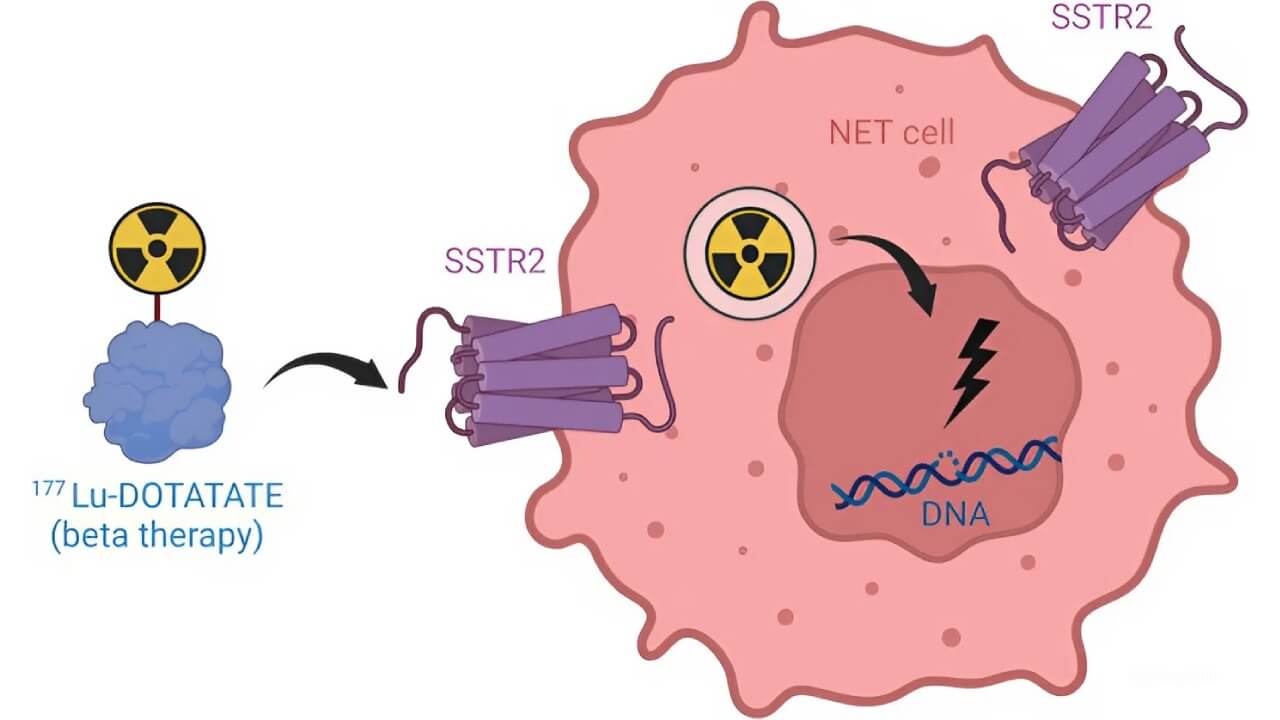
في ألمانيا، يتم إجراء PRRT في مراكز الطب النووي المتخصصة، التي تتبع بروتوكولات السلامة الصارمة والمبادئ التوجيهية الدولية. بالنسبة للعديد من المرضى، وخاصةً أولئك الذين يعانون من أورام غير قابلة للجراحة أو مقاومة للعلاج، يُحسّن PRRT بشكل ملحوظ كلا من البقاء على قيد الحياة وجودة الحياة.
الانصمام الكيميائي عبر الشرايين (TACE)
الانصمام الكيميائي عبر الشرايين (TACE) هو تقنية تداخلية متقدمة تُستخدم في المقام الأول للمرضى الذين يعانون من أورام عصبية صماوية انتشرت إلى الكبد. يوصل الإجراء العلاج الكيميائي مباشرةً إلى الشرايين المُغذية للورم، ويتبعه جزيئات صغيرة تعمل على منع إمداد الدم — مما يؤدي إلى حبس الدواء داخل الورم وحرمانه من الأكسجين.
يسمح هذا النهج الموضعي بتوفير تركيزات عالية من العلاج الكيميائي حيث تكون هناك حاجة ماسة إليه، مع آثار جانبية جهازية أقل. يُعد أخصائيو الأشعة التداخلية الألمان من بين الأكثر خبرة في أوروبا، حيث يستخدمون أحدث أنظمة التصوير وأنظمة قائمة على القسطرة لإجراء TACE بأمان في الحالات المعقدة.
العلاج المناعي بالخلايا المتغصنة
على عكس العلاجات التقليدية التي تستهدف الورم مباشرةً، يعمل العلاج بالخلايا المتغصنة Dendritic cell therapy على إعادة تشغيل جهاز المناعة للقيام بالمهمة بنفسه. يبدأ الأمر بجمع الخلايا المناعية للمريض من خلال سحب الدم. يتم بعد ذلك تعريض هذه الخلايا لمستضدات خاصة بالورم في المختبر، ويتم تدريبها للتعرف على السرطان، وأخيرا حقنها مرة أخرى في المريض لشن هجوم مناعي موجه.
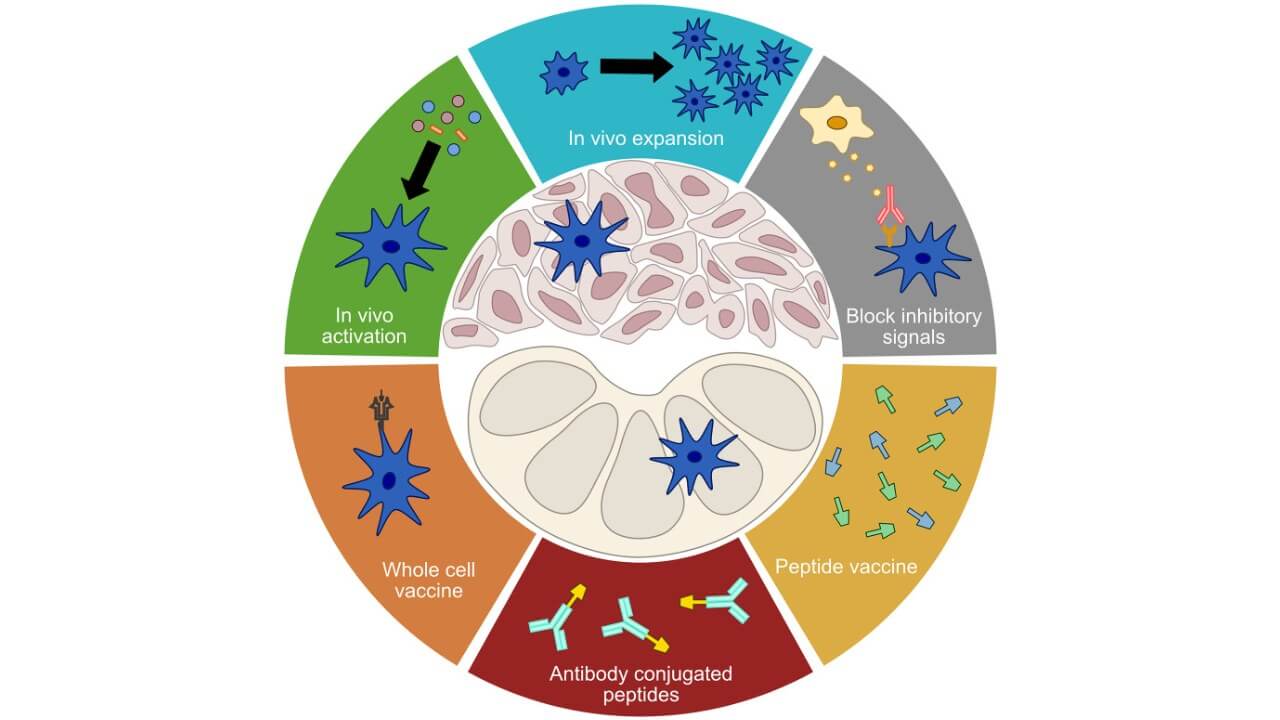
ما يجعل هذا العلاج فريداً من نوعه هو أساسه العلمي. الخلايا المتغصنة (الخلايا الشجيرية) هي الرُسل الرئيسية في الجسم بين المناعة الفطرية والمناعة التكيفية - وهو الأمر الذي لم يكن مفهوماً بشكلٍ كامل حتى أدى اكتشافها إلى إعادة تشكيل مناعة السرطان بشكل أساسي. نال هذا الاكتشاف اعترافاً عالمياً في عام 2011، عندما تم تكريم عمل رالف ستاينمان في الخلايا المتغصنة Dendritic cells بجائزة نوبل بعد وفاته [7].
في الممارسة السريرية، أظهر هذا النهج فوائد حقيقية للمرضى الذين يعانون من أورام عصبية صماوية متقدمة أو مقاومة للعلاج: آثار جانبية أقل، وتحمُل أفضل، وفي كثير من الحالات، استقرار ذات دلالة للورم.
| نوع العلاج | معدل البقاء على قيد الحياة لمدة عامين | معدل الاستجابة | المدة | الآثار الجانبية |
|---|---|---|---|---|
| العلاجات القياسية | ~٪70-55 للمراحل المبكرة ~٪30 للمراحل المتقدمة | ~٪60-40 | من عدة أسابيع إلى أشهر | متوسطة إلى شديدة (تعب، وغثيان، وعقم، ومشاكل الأمعاء / المثانة) |
| الأساليب المبتكرة | ~٪75-60 في حالات مُتقدمة / مقاومّة مختارة | ٪65-45 | من الممكن جلسات متعددة | خفيفة (حُمى، والتهاب موضعي، وأعراض تُشبه أعراض الإنفلونزا) |
*بناءً على البيانات السريرية لـ Booking Health والنتائج المنشورة. قد تختلف النتائج الفعلية اعتماداً على حالة المريض وبروتوكول العلاج.
علاج الأورام العصبية الصماوية في ألمانيا
تشتهر ألمانيا على نطاق واسع بتميزها في خدمات طب الأورام والرعاية الصحية، وخاصةً عندما يتعلق الأمر بإدارة الحالات المعقدة والنادرة مثل الأورام العصبية الصماوية Neuroendocrine tumors. بفضل إمكانية الوصول إلى التشخيص المتقدم، والفرق متعددة التخصصات، وخيارات العلاج السريري الحديثة، يأتي المرضى من جميع أنحاء العالم إلى المستشفيات الألمانية بحثاً عن رعاية دقيقة، وشخصية.
لماذا يختار المرضى علاج الأورام العصبية الصماوية في ألمانيا
إحدى المزايا الرئيسية لعلاج NET في ألمانيا هو المستوى العالي للتخصص الطبي. تعمل العديد من المستشفيات الألمانية ضمن شبكات أورام معتمدة، حيث يعمل الجراحون، وأخصائيو الأشعة، وأطباء الغدد الصماء، وخبراء الطب النووي كفريق واحد. يتمتع هؤلاء المتخصصون بخبرة واسعة في إدارة السرطانات العصبية الصماوية في جميع مراحلها، من المرض الموضعي إلى النقائل المنتشرة.
توافر التصوير عالي الدقة والاختبارات الهرمونية الشاملة يضمن التشخيص الدقيق وتحديد المرحلة. هذا يسمح للأطباء بتصميم استراتيجيات مُخصصة باستخدام الجراحة، أو العلاج الإشعاعي، أو العلاج القائم على اللوتيتيوم، أو العلاج المناعي.
بفضل الدعم المُقدم من خدمة تنسيق الرعاية الصحية Booking Health، يمكن للمرضى الدوليين الوصول إلى هذا المستوى من الرعاية دون أي تعقيدات إدارية.
المستشفيات ومراكز الأورام الرائدة
تشتهر العديد من المراكز السريرية في ألمانيا عالمياً بتركيزها على علاج الورم العصبي الصماوي. لا تُقدم هذه المستشفيات خيارات علاجية متقدمة فحسب، بل تشارك أيضاً في الأبحاث السريرية الجارية، مما يضمن استفادة المرضى من أحدث التطورات في الطب والرعاية الصحية.
استمرارية الرعاية تُشكل قوة كبيرة: حيث يتم متابعة المرضى عن كثب من قبل فريقهم الطبي في كل مرحلة — من الاستشارة الأولى وخلال العلاج والرعاية اللاحقة.
التكلفة وتنظيم العلاج في ألمانيا
عندما يتعلق الأمر بعلاج الورم العصبي الصماوي في ألمانيا، تكون التكاليف شفافة وثابتة بموجب القانون. يتلقى المرضى عروض أسعار مُفصلة تُغطي كل شيء بدءاً من التشخيص والجراحة إلى الإقامة في المستشفى ورعاية المتابعة.
بالنسبة للمرضى الدوليين، تتولى Booking Health التنظيم بالكامل - من مراجعة المستندات الطبية واختيار المستشفى إلى جدولة المواعيد، والترجمة، ومراقبة التكاليف. هذا يسمح للمرضى بالتركيز على تعافيهم بينما تتم إدارة جميع اللوجستيات والاتصالات مع المستشفيات الألمانية بشكل احترافي.
| تكلفة العلاج | الأساليب القياسية | الأساليب المبتكرة |
|---|---|---|
| سعر العلاج في ألمانيا | 25.000 $ – 280.000 $ للدورة الكاملة | 6.500 $ – 38.000 $ للدورة الكاملة |
| سعر العلاج في المملكة المتحدة | 26.000 $ – 320.000 $ للدورة الكاملة | 25.000 $ – 60.000 $ للدورة الكاملة |
| سعر العلاج في الولايات المتحدة الأمريكية | 100.000 $ – 350.000 $ للدورة الكاملة | 40.000 $ – 150.000 $ للدورة الكاملة |
من التشخيص الخاطئ إلى الوضوح: كيف وجدت ماريا علاجاً حقيقياً في الخارج
عندما بدأت ماريا استيفيز، مهندسة معمارية تبلغ من العمر 46 عاماً من إشبيلية، تعاني من نوبات احمرار الوجه، وآلام البطن، وتعب غير مُبرر، ظن الأطباء في البداية أنه انقطاع الطمث المبكر. "قيل لي إنها مشكلة هرمونية مرتبطة بالتوتر. لا شيء خطير،" تتذكر ماريا.
لكن الأعراض لم تختفي. في الواقع، ازدادت سوءاً. في نهاية المطاف، كشف الفحص عن وجود ورم عصبي صماوي (NET) في البنكرياس لديها، مع وجود نقائل في الكبد بالفعل.
بدأوا البحث عن خيارات علاج أكثر شمولاً، وعثروا على Booking Health، التي تساعد المرضى على ترتيب الرعاية الطبية المعقدة في ألمانيا.
"ملأتُ النموذج عبر الإنترنت في وقت متأخر من إحدى الأُمسيات،" يقول خافيير. "في صباح اليوم التالي، ردّ عليّ أحد موظفي Booking Health. قدموا مراجعة مُفصلة لحالة ماريا واقترحوا مستشفى أورام رائد في ميونخ متخصص في علاج NET بالعلاج باللوتيتيوم والعلاج المناعي."
في غضون أسبوعين، كانت ماريا في ألمانيا. أكّد الأطباء التشخيص وصمموا خطة علاج شخصية شملت العلاج بالنويدات المشعة لمستقبلات الببتيد PRRT باستخدام اللوتيتيوم-177، والعلاج المثبط للهرمونات، ودعماً غذائياً.
تولّت Booking Health جميع الإجراءات العملية — المواعيد، والأعمال الورقية، والترجمات، وحتى المساعدة في ترتيب أماكن الإقامة بالقرب من المستشفى. "لم نشعر بالضياع قط،" يقول خافيير. "كان فريقهم متقدماً بخطوة دائماً."
الآن، وبعد ثلاث دورات علاج، استقرّ مرض ماريا. تحسّنت أعراضها، وعادت إلى العمل بدوام جزئي، مستعيدةً طاقتها وصفاء ذهنها.
علاج متقدم للسرطان: قصص نجاح المرضى مع Booking Health
رحلة طبية: كل خطوة على الطريق مع Booking Health
يُعدّ إيجاد أفضل استراتيجية علاج لحالتك السريرية مهمةً صعبة. كونك مُرهق بالفعل من جلسات العلاج المتعددة، واستشارة العديد من المتخصصين، وتجربة مختلف التدخلات العلاجية، قد تجد نفسك في حيرة من أمرك بسبب المعلومات التي يقدمها الأطباء لك. في مثل هذه الحالة، من السهل اختيار خيار مباشر أو اتباع بروتوكولات علاجية موحدة ذات قائمة طويلة من الآثار السلبية بدلاً من اختيار خيارات علاج مبتكرة متخصصة للغاية.
لاتخاذ قرار مستنير والحصول على خطة مخصصة لإدارة السرطان، والتي سيتم تصميمها لتناسب حالتك السريرية المحددة، استشر الخبراء الطبيين في Booking Health. نظراً لكونها في الطليعة في تقديم أحدث الابتكارات الطبية لـ 12 عاماً بالفعل، تتمتع Booking Health بخبرة قوية في إنشاء برامج إدارة الأورام العصبية الصماوية المعقدة في كل حالة فردية. كشركة مرموقة، تُقدم Booking Health خطط علاج الورم العصبي الصماوي الشخصية مع حجز مباشر للمستشفى ودعم كامل في كل مرحلة، بدءاً من العمليات التنظيمية ووصولاً إلى المساعدة أثناء العلاج. نحن نُقدم:
- تقييم وتحليل التقارير الطبية
- تطوير برنامج الرعاية الطبية
- اختيار موقع العلاج المناسب
- إعداد الوثائق الطبية وإرسالها إلى المستشفى المناسب
- الاستشارات التحضيرية مع الأطباء لتطوير برامج الرعاية الطبية
- نصائح الخبراء أثناء الإقامة في المستشفى
- رعاية المتابعة بعد عودة المريض إلى بلده الأصلي بعد إكمال برنامج الرعاية الطبية
- الاهتمام بالإجراءات الرسمية كجزء من التحضير لبرنامج الرعاية الطبية
- تنسيق وتنظيم إقامة المريض في بلد أجنبي
- المساعدة في الحصول على التأشيرات وتذاكر الطيران
- مُنسق شخصي ومترجم فوري مع دعم على مدار الساعة 24/7
- ميزانية شفافة بدون تكاليف خفية
الصحة جانبٌ لا يُقدّر بثمن في حياتنا. ينبغي تفويض إدارة شيء هش للغاية ولكنه ثمين فقط إلى خبراء يتمتعون بخبرة مُثبتة وسمعة طيبة. Booking Health هي شريك جدير بالثقة يساعدك في الحصول على صحة أقوى وجودة حياة أفضل. اتصل بمستشارنا الطبي لمعرفة المزيد عن إمكانيات العلاج الشخصي بالطرق المبتكرة للأورام العصبية الصماوية مع متخصصين رائدين في هذا المجال.
الأسئلة الشائعة: الأورام العصبية الصماوية (أورام الغدد الصُم العصبية)
أرسل طلب للعلاجالأورام العصبية الصماوية أو أورام الغدد الصماء العصبية (NETs) هي نمو نادر يبدأ في الخلايا المُنتجة للهرمونات. يمكن أن تحدث أورام الغدد الصُم العصبية في الرئتين، والبنكرياس، والأمعاء، أو أعضاء أخرى وغالباً ما تنمو ببطء، وأحياناً بدون أعراض مبكرة.
السبب الدقيق ليس واضحاً دائماً، ولكن العوامل الوراثية، وبعض المتلازمات، والالتهاب المزمن في الأمعاء أو البنكرياس يمكن أن تلعب دوراً في تطور الأورام العصبية الصماوية Neuroendocrine tumors.
نعم، تُعتبر الأورام العصبية الصماوية NETs سرطانية. بعضها ينمو ببطء ويتصرف مثل الأورام الحميدة، في حين أن البعض الآخر عدواني وينتشر بسرعة، وخاصةً السرطانات العصبية الصماوية عالية الدرجة.
يتضمن تشخيص أورام الغدد الصماء العصبية إجراء اختبارات الدم، وعلامات الورم، والتصوير (CT و MRI و PET-CT)، والخزعة. في ألمانيا، تُساعد التشخيصات المتقدمة على اكتشاف وتصنيف الأورام العصبية الصماوية بدقة عالية.
تعتمد أعراض أورام الغدد الصُم العصبية على نوع الورم وموقعه. تشمل العلامات الشائعة احمرار، وإسهال، وآلام البطن، وفقدان الوزن غير المُبرر. يمكن أن تُسبب الأورام المُنتجة للهرمون آثاراً جهازية إضافية.
العلاج فردي للغاية وقد يشمل الجراحة أو PRRT أو TACE أو العلاج المناعي. بعض أفضل مستشفيات NET في ألمانيا تُقدم برامج شاملة مُصممة خصيصاً لدرجة الورم وانتشاره.
يمكن شفاء الأورام العصبية الصماوية NETs، خاصةً إذا تم اكتشافها مبكراً وإزالتها جراحياً. في الحالات المتقدمة، يركز علاج NET في ألمانيا على السيطرة على المرض على المدى الطويل وتحسين جودة الحياة.
يستخدم PRRT (العلاج بالنويدات المشعة لمستقبلات الببتيد) اللوتيتيوم-177 المشع لاستهداف خلايا الورم. يتم تقديم PRRT في ألمانيا في مستشفيات الطب النووي المتخصصة وهو فعال للعديد من الأورام العصبية الصماوية.
العلاج المناعي Immunotherapy، بما في ذلك العلاج بالخلايا المتغصنة Dendritic cell treatment، يمكن أن يكون فعالاً في بعض حالات NET. في ألمانيا، متوفر من خلال برامج شخصية مُخصصة، غالباً عندما تكون الخيارات القياسية محدودة.
تشمل أفضل المراكز لعلاج الأورام العصبية الصماوية في ألمانيا مستشفيات في ميونخ، وهايدلبرغ، وإيسن. يُعتبر العديد منها جزءاً من شبكات أورام معتمدة تُقدم رعاية متعددة التخصصات.
تعتمد تكلفة العلاج في ألمانيا على نوع العلاج. عادةً ما تُدفع فواتير PRRT، والجراحة، والتشخيص ضمن باقات ثابتة السعر مع شفافية تامة من خلال Booking Health.
يتم علاج NETs من قبل فريق من المتخصصين: أطباء الأورام، والجراحين، وأطباء الغدد الصماء، وخبراء الطب النووي - وخاصةً في مستشفيات NET المتخصصة في ألمانيا.
نعم، تُقدم العديد من المستشفيات الألمانية آراء ثانية من الخبراء. يمكن لـ Booking Health ترتيب مراجعات لحالتك من قبل متخصصي NET، حتى قبل سفرك، بناءً على تقاريرك الطبية الموجودة.
يمكنك الاتصال بـ Booking Health لتنسيق كل خطوة - من مراجعة السجل الطبي واختيار مستشفى إلى دعم التأشيرة وخدمات الترجمة - مما يضمن الوصول السلس إلى علاج NET في ألمانيا.
يشمل علاج الأورام العصبية الصماوية الجراحة، والعلاج الكيميائي، والعلاجات المبتكرة (مثل العلاج بالنويدات المشعة لمستقبلات الببتيد (PRRT)، والانصمام الكيميائي عبر الشرايين (TACE)، والعلاج المناعي بالخلايا المتغصنة). عادةً، يعتمد الاختيار على درجة الورم، وموقعه، ومرحلته.
يمكن أن تختلف أعراض الأورام العصبية الصماوية (NETs) باختلاف موقع الورم ونشاط الهرمونات. تشمل الأعراض الشائعة ألم البطن، وإسهال، واحمرار الوجه، وأزيز الصدر، وتعب، وفقدان الوزن غير المُبرر. كما قد تُسبب الأورام العصبية الصماوية المُفرزة للهرمونات المتلازمة السرطاوية مع احمرار الوجه وتغيرات صمام القلب.
في ألمانيا، تتراوح تكاليف العلاج القياسي للورم العصبي الصماوي (NET) من 25.000 $ - 280.000 $، بينما تتراوح تكلفة الطرق المبتكرة من 6.500 $ - 38.000 $. أما في المملكة المتحدة، تتراوح الأسعار من 26.000 $ - 320.000 $ و 25.000 $ - 60.000 $، بينما في الولايات المتحدة الأمريكية، تصل إلى 100.000 $ - 350.000 $ و 40.000 $ - 150.000 $ على التوالي. في المقابل، غالباً ما يكون الوصول إلى العلاجات المتقدمة للورم العصبي الصماوي NET في أستراليا محدوداً، ويمكن أن تصل الأسعار إلى أربعة أضعاف ما هي عليه مقارنةً بأوروبا.
معدل البقاء على قيد الحياة لمدة عامين للأورام العصبية الصماوية حوالي 55-70٪ مع العلاجات القياسية. ومع ذلك، يمكن أن يصل إلى 60-75٪ باستخدام أساليب مبتكرة مثل PRRT أو TACE أو العلاج المناعي، خاصةً في الحالات المتقدمة أو المُقاومة للعلاج.
تختلف معدلات الاستجابة لعلاج الورم العصبي الصماوي: 40-60٪ للعلاجات القياسية و 45-65٪ للخيارات المتقدمة (مثل PRRT والعلاج بالخلايا المتغصنة Dendritic cell therapy)، والتي يمكن أن توفر سيطرة أعلى على الورم ونتائج مُحسنة على المدى الطويل.
أثناء علاج الورم العصبي الصماوي (NET)، يمكن أن تُسبب العلاجات القياسية تعب، أو غثيان، أو تغيرات في الأمعاء، أو عقم، أو تهيج الجلد. في المقابل، تُسبب الأساليب المبتكرة عادةً أعراض خفيفة تُشبه أعراض الإنفلونزا أو التهاب موضعي، مما يُوفر تحمُلاً أفضل.
عادةً ما يستغرق علاج الورم العصبي الصماوي القياسي (NET) من عدة أسابيع إلى أشهر. من جهةً أخرى، العلاجات المبتكرة (مثل PRRT، والتطعيم بالخلايا المتغصنة Dendritic cell vaccination، وغيرها) تتضمن جلسات متعددة على فترات أقصر. بالتالي، يمكن أن تسمح هذه الأساليب بالتعافي بشكلٍ أسرع وتحسين جودة الحياة.
اختر العلاج في الخارج وستحصل بالتأكيد على أفضل النتائج!
المؤلفون:
تم تحرير المقال من قبل خبراء طبيين وأطباء معتمدين من مجلس الأطباء الدكتورة ناديجدا إيفانيسوفا و الدكتور بوغدان ميخالنيوك. لعلاج الحالات المشار إليها في المقال، يجب استشارة الطبيب؛ المعلومات الواردة في المقالة ليست مخصصة للتطبيب الذاتي!
سياستنا التحريرية، التي توضح بالتفصيل التزامنا بالدقة والشفافية، متاحة هنا. انقر على هذا الرابط لمراجعة سياساتنا.
المصادر:
[1] PubMed. الاتجاهات الوبائية والعوامل المرتبطة بالبقاء على قيد الحياة الإجمالي لدى المرضى المصابين بأورام عصبية صماوية على مدى العقدين الماضيين في الولايات المتحدة الأمريكية.
https://pubmed.ncbi.nlm.nih.gov/37924638/
[2] National Library of Medicine. مراجعة شاملة حول الأورام العصبية العصبية: العرض، والفسيولوجيا المرضية، والإدارة.
https://pubmed.ncbi.nlm.nih.gov/37568540/
[3] PubMed. لا شيء سوى NET: مراجعة للأورام والسرطانات العصبية الصماوية.
https://pubmed.ncbi.nlm.nih.gov/29091800/
[4] National Institutes of Health (NIH). التصوير في الأورام العصبية الصماوية: تحديث للطبيب.
https://pubmed.ncbi.nlm.nih.gov/26257863/
[5] PubMed. الوضع الحالي للعلاج بالنويدات المشعة لمستقبلات الببتيد في الأورام العصبية الصماوية المعوية البنكرياسية من الدرجة الأولى والدرجة الثانية.
https://pubmed.ncbi.nlm.nih.gov/39563515/
[6] PubMed Central. الخلايا المتغصنة ودورها في العلاج المناعي.
https://pmc.ncbi.nlm.nih.gov/articles/PMC7253577/
[7] Nobel Prize. جائزة نوبل في علم وظائف الأعضاء أو الطب 2011 – رالف ستاينمان.
https://www.nobelprize.org/prizes/medicine/2011/steinman/facts/
اقرأ:
علاجات جديدة فعالة للمرحلة الرابعة من السرطان: الابتكارات في علاج الأورام
علاج الأورام العصبية الصماوية في الجهاز الهضمي
فن التشخيص في الحالات السريرية المعقدة: الأورام العصبية الصماوية (NETs)
قائمة المقالات:
- فهم الأورام العصبية الصماوية
- الأساليب التشخيصية لـ NETs
- خيارات العلاج القياسية
- العلاجات المتقدمة والمبتكرة
- علاج الأورام العصبية الصماوية في ألمانيا
- من التشخيص الخاطئ إلى الوضوح: كيف وجدت ماريا علاجاً حقيقياً في الخارج
- رحلة طبية: كل خطوة على الطريق مع Booking Health
- الأسئلة الشائعة: الأورام العصبية الصماوية (أورام الغدد الصُم العصبية)
لا تعرف من أين تبدأ؟
اتصل بـ Booking Health